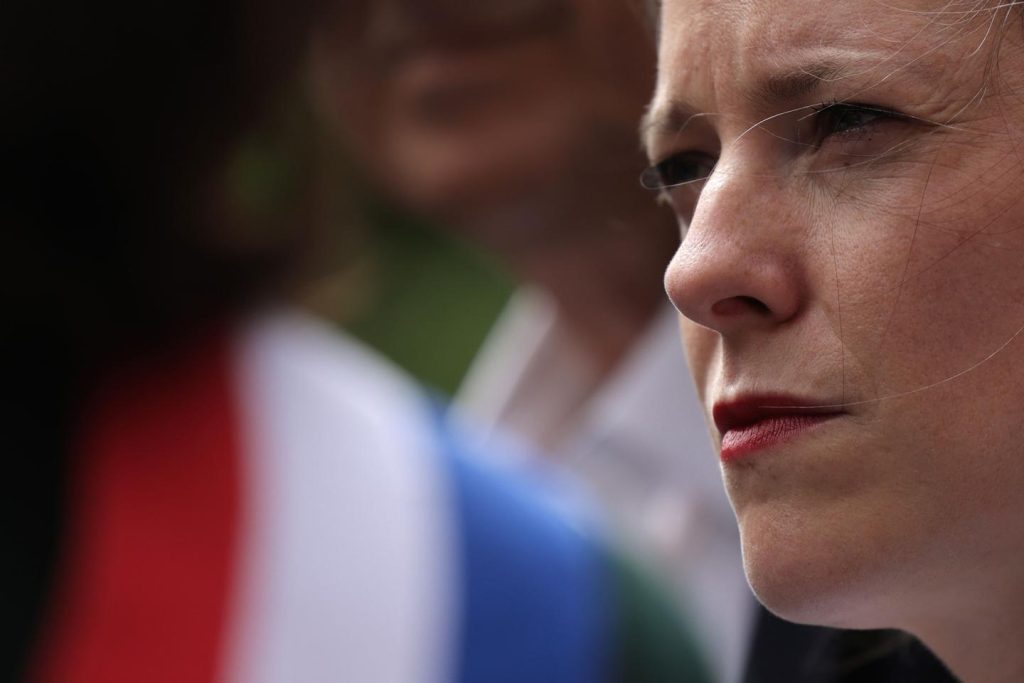Lucie Castets, a high-ranking civil servant and candidate for the New Popular Front (NFP) in Matignon, was considering running for a parliamentary seat in Grenoble, replacing the La France Insoumise (LFI) representative accused of sexual violence. However, she ultimately decided against running in the upcoming by-election in the 1st district of Isère. Castets stated that the conditions for her candidacy were not met, but emphasized the importance of winning back the constituency for the left.
François Hollande, with whom Castets regularly consults, reportedly advised her that without an official role, it would be challenging for her to maintain her image as a unifying figure of the left. Her hesitation to run stemmed from the requirement that she join the LFI group if elected, as per the agreement between NFP and LFI. Jean-Luc Mélenchon’s party, with only 71 seats in Parliament, was reluctant to lose a seat to Castets. However, Mélenchon publicly expressed support for her candidacy, offering her the opportunity to sit as an “associate” member, similar to other independent MPs within the LFI.
Mélenchon’s concession allowed Castets to retain her role as a unifier while providing her with an alternative opportunity to run for a parliamentary seat in the Ardennes, where a National Rally deputy had recently resigned. This gesture was perceived as a way to prevent any accusations of sabotage against Mélenchon or his party. Castets had been chosen for her ability to forge consensus, and Mélenchon’s willingness to accommodate her demonstrated a desire to maintain cohesion within the left.
The decision not to run in the by-election came after a long period of deliberation for Castets, who had been weighing her options for several weeks. Despite her initial interest in pursuing a political career, the obstacles presented by the LFI group proved to be insurmountable. Ultimately, Castets felt that the conditions were not conducive to her fulfilling her desired role as a unifying force within the left. Her choice to step back from the candidacy reflected a strategic decision to prioritize the broader goals of the left-wing movement.
Castets’ decision to forego the parliamentary race highlighted the complexities of party dynamics and coalition building within the left. While initially considered a potential candidate for a pivotal seat, Castets’ withdrawal underscored the challenges of navigating political alliances and group dynamics. The support she received from Mélenchon, despite the initial hurdles, demonstrated a commitment to maintaining unity within the left and finding alternative opportunities for talented individuals like Castets to contribute to the political landscape.


